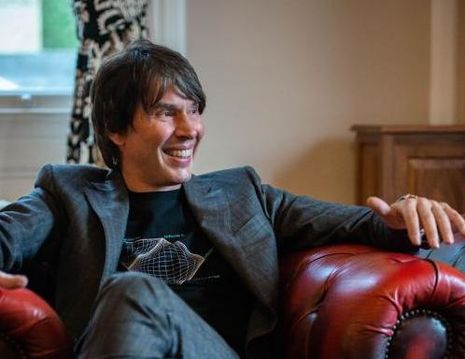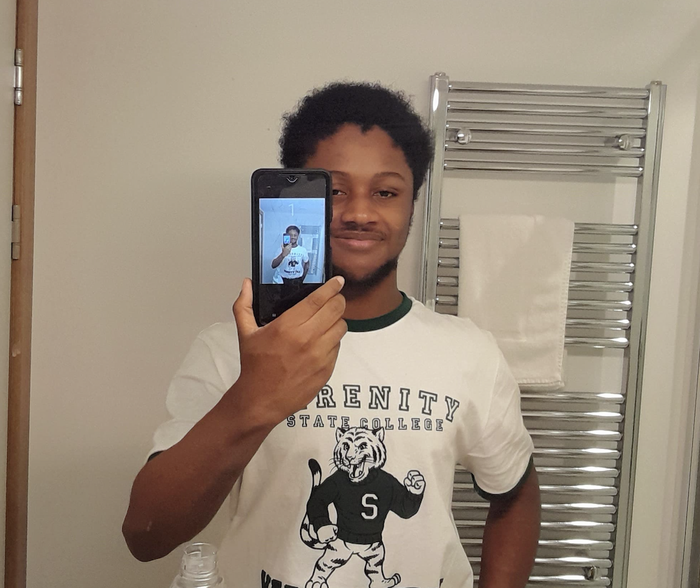‘We might be the only civilisation in this galaxy’: Professor Brian Cox on why we should take more care of the Earth we’ve got
Professor Brian Cox on flat earthers, appearing on Top of the Pops and whether we should contact extraterrestrials

I was at once enthralled and apprehensive to interview Professor Brian Cox. On one side of the table was one of Britain’s finest physicists, and on the other an English student who left physics behind at GCSE. l opened by asking about flat earthers - perhaps a desperate attempt to invoke one of the few groups of people with less astronomy knowledge than myself. But although Cox agrees that flat earthers are “funny”, he knows that, rather than laughing, “what you really want to do is give people a sense of how we acquire what I would call reliable knowledge.”
Cox recommends interrogating the flat earth theory as an alternative model of the universe. 'And so you can begin to use [them] to teach and say, “Well, what are the problems if you have a big flat thing that’s made of matter?”’ Nipping pseudoscientific models in the bud is important, Cox observes, because "there’s very good evidence that once you have an interest in one conspiracy theory you’re more likely to believe in other conspiracy theories."
If flat earthers were safe from outright mockery, then so was I, and the conversation moved onto science fiction. Cox recommends Interstellar not only for being a “great film” but as a useful aid for teaching relativity. Back in 2014, “no one knew what happened when [*spoiler*] you fall into a black hole. There’s been a huge revolution in the last three years in the way we understand what’s inside a black hole and how that behaves.” Cox’s childhood favourites include Blade Runner and Star Wars, although he explains how Star Wars’ hyperspeed travel would be rather more depressing with accurate physics:
“As long as you go close to the speed of light you can travel immense distances in short spaces of time. [...] But if you do that and then go back again, then huge amounts of time will have passed at the place you return to. [...] So the problem with Star Wars is not travelling on the Millennium Falcon, really close to the speed of light, jumping vast distances in short spaces of time. It’s that when you go back again, everyone will be dead.”
Before he was a physicist, Cox played the keyboard for Dare and D:Ream, recording Tony Blair’s 1997 election anthem ‘Things Can Only Get Better’ with the latter. When he was in a pub, Cox’s dad gave a tape of his son playing to Darren Wharton, the keyboardist from Thin Lizzy and the founder of Dare, and by the time he was 18, Cox was in the band - “my first professional show was supporting Jimmy Page.” Although going from Oldham to stardom was an “amazing thing”, Cox doesn’t know if appearing on Top of the Pops helped him in his current career. “It’s very different, talking to a camera about science, and waving your long hair around and playing keyboard”, he laughs.
“The hardest thing in the world is to finish stuff, not start it”
Cox found the thought of staying with the band tempting, but a career in physics and astrophysics was written in the stars, and he returned to Manchester to study. “I think when you’re younger, usually you can try something and if it doesn’t work, you can go back to what you were doing and you can probably do that once.” However, Cox recommends picking one thing, and going all the way with it. “The hardest thing in the world is to finish stuff, not start it.” Cox considers himself to have been “lucky twice”, getting two record deals just after leaving school, but says that “you have to understand that if you become successful in any field, it’s a mixture of luck and work. I don’t beat myself up about that.”
After Dare, D:Ream and a degree, Cox was catapulted into the limelight by an appearance on Newsnight in 2007, representing a physics action group criticising physics funding cuts. To this day, Cox brings politics into his scientific education, in the same way as his hero, American astronomer Carl Sagan. “The thirteenth episode of Cosmos [Sagan’s 1980 TV series] is about the idiocy of nuclear war. [...] The number of civilisations on average per galaxy might be somewhere between zero and one - per galaxy. So it’s quite possible to argue that this is it in this galaxy, and I think that’s a political statement.”
When Cox spoke at the introduction to COP26 in Glasgow last year, he reminded the world leaders of this. He paraphrases his speech: “We might be the only civilisation in this galaxy. So if you lot mess this up, you might eliminate meaning forever in a galaxy of 400 billion stars.” Cox believes that all the conditions which have led to us being alive today - a planet the right distance from a star, with oceans, that has remained stable for a third of the universe’s lifetime - might not exist anywhere else in the galaxy. We “might want to think twice about pumping all that CO2.”
“If there’s going to be destruction here... it’ll be us lot that do it to ourselves”
Just hours before our interview, Artemis I, “the first in a series of increasingly complex missions that will enable human exploration to the Moon and Mars” was launched. This brings Earth closer than ever to colonising new planets, but colonial expansion is rarely welcomed by those on the receiving end. So, if we find life out in space, should we contact it, or leave well alone? “I don’t think there are any [other forms of life] within the neighbourhood. If there’s going to be destruction here, I don’t think it’s going to come from a civilization around a different star. I think it’ll be us lot that do it to ourselves.”
“...unless something hits us,” he adds, with a glint in his eye.
 News / Hundreds of Cambridge academics demand vote on fate of vet course20 February 2026
News / Hundreds of Cambridge academics demand vote on fate of vet course20 February 2026 News / Judge Business School advisor resigns over Epstein and Andrew links18 February 2026
News / Judge Business School advisor resigns over Epstein and Andrew links18 February 2026 News / University Council rescinds University Centre membership20 February 2026
News / University Council rescinds University Centre membership20 February 2026 News / Petition demands University reverse decision on vegan menu20 February 2026
News / Petition demands University reverse decision on vegan menu20 February 2026 News / Caius students fail to pass Pride flag proposal20 February 2026
News / Caius students fail to pass Pride flag proposal20 February 2026










